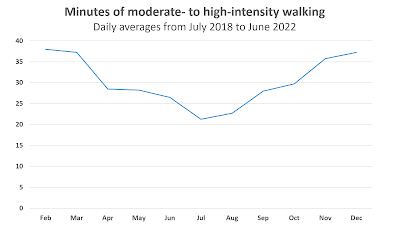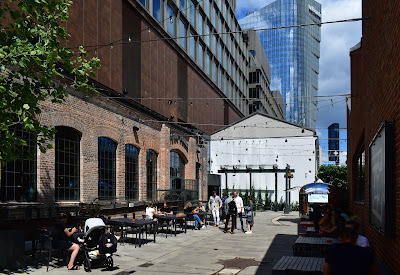I spent two years living in Coventry as a student, both times in the southern suburb of Earlsdon. My first year at Warwick University - my first time living away from home - was spent off-campus, a more 'authentic' experience than the cloistered island of academia. Coventry at the time (1976) was a fading industrial city, its motor-car factories by then in terminal decline. A city with its mediaeval heart bombed out by the Luftwaffe and replaced by a modern 'precinct', the post-war centre of Coventry interested me not.
Although I rambled far and wide during my four student years (the other two being spent on campus from which I'd roam south into the Warwickshire countryside), there are two specific memories of Coventry that flash back to me from time to time, more strongly than any other memories of the city. [My rural Warwickshire memories are dominated by flashbacks from the area around Catesby, but that's a separate story.]
The first Coventry qualia flashback relates to my discovery of the old gasworks on the Foleshill Road. They have long since been demolished, the site of the Coventry Arena. But in the late 1970s, the place was derelict; production of gas from coal had ceased, and the site, sprawling over many acres, was largely abandoned. There were some Gas Board offices still functioning, I recall. But - as was common at the time - nothing was closed off, there were no security guard patrols, I could just wander in and stroll around. The site was criss-crossed with railway sidings, above them high towers made of steel frames that once held aloft powerful lights to enable night-time operations. It was an overcast and cold day in early spring 1977 (or possibly '79); I decided to climb up one of these towers, all of which still had ladders attached to them. The structure was rusty, and creaking as I climbed ever higher; as I got nearer the top, the wind strengthened, and the tower began to sway gently, groaning as it did so. I caught fright and decided to climb back down as quickly as possible!
That industrial atmosphere, late afternoon, early evening, the gloomy sky, deserted railway sidings, a complex of abandoned brick buildings at the edge of the site; chimney stacks that no longer belched smoke - the atmosphere was there. Urbex before its time.
That atmosphere comes back to me unbidden every now and then. At the time I was there, it felt so familiar - but why? There's a link to the Hanwell flashbacks that I wrote about in my previous post; Bricktorian Britain, industry at the city's edge, steam and steel, iron and coal, grime and rust under leaden skies.
The other memory I can put a more precise time - it was just before Easter in 1977, which Google informs me was on 10 April that year. I had at that time a large Scalextric model racing track (bought second-hand); in the western suburbs of Coventry there was a shop that supplied accessories for slot-cars, so off I went. It was one of those days when spring was in the air, bright with single clouds hurrying across the sky, although it was still quite cold. Unlike my gas works visit, where I could identify the place on an old map but don't remember the precise time, here I can't quite identify where it was - Binley Road? Walsgrave Road? I seem to remember a bridge over a railway cutting, but old maps show bridges over both of these roads (the railway's long gone now, replaced by a road, I see). But the atmosphere, I recall in flashbacks of qualia memory. Again - the brickwork, Victorian brick all around, but with tacky 1970s updates - shop facades in orange and purple, with-it fonts, bells that rang when you pushed the door open, streets full of Ford Cortinas, Austin 1100s, Vauxhall Vivas, Hillman Avengers and Triumph Heralds - the latter two locally built. It was the weather that brings back this scene; at least once or twice a year, the sky, the temperature, the wind - conjures up a day - not a special day by any means - but one that stuck in my memory. A time of change.
The role of consciousness in time, and time in consciousness, is something that I shall write about soon.
This time two years ago:
Masterpiece for the digital age
[No wall yet - no builders; solar panels instead]

























